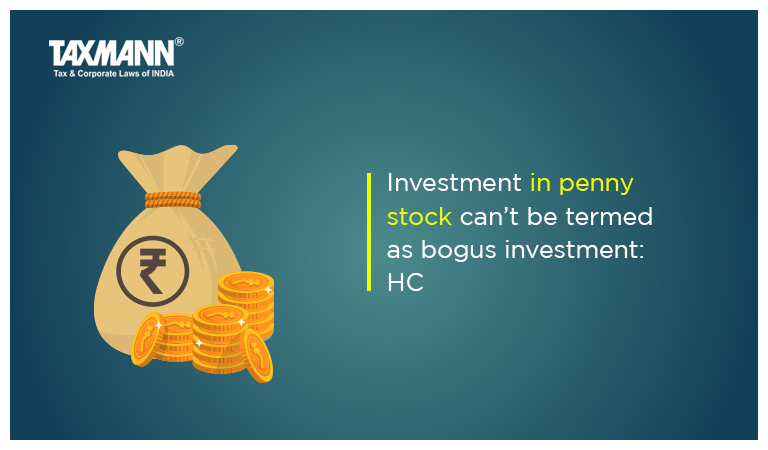Investment in penny stock can’t be termed as bogus investment: HC
- Blog|News|Income Tax|
- 2 Min Read
- By Taxmann
- |
- Last Updated on 27 September, 2022

Case Details: PCIT v. Jagat Pravinbhai Sarabhai - [2022] 142 taxmann.com 247 (Gujarat)
Judiciary and Counsel Details
-
- N.V. Anjaria & Bhargav D. Karia, JJ.
- Manish Bhatt, Sr. Adv. & Karan Sanghani for the Appellant.
Facts of the Case
Assessee filed the return of income for the assessment year 2011-12 on 29-3-2012 declaring his total income Rs. 3,11,490. Subsequently, the assessment was reopened as information was received that assessee has indulged in the script of the shell company. He had claimed long-term capital gain on the sale of shares of Devika Proteins Limited and the amount was claimed as exemption.
The Assessing Officer (AO) treated said gains as bogus and in nature of penny stock. He made additions to the said amount under section 68. On appeal, the CIT(A) held that since shares were in the nature of old investment, they could not be treated as penny stock by any stretch of the imagination. Tribunal upheld to view taken by the CIT(A).
Aggrieved-AO filed the instant appeal before the Gujarat High Court.
High Court Held
The Gujarat High Court held that the genuineness of investment in the shares by the assessee was substantiated by him by producing copy of the transaction statement for the period from 1-6-2001 to 1-10-2010. The investment was made in the year 2000-01. The shares were retained for more than ten years and were sold after such a long time.
These circumstances suggested that the investment was not bogus or investment made in penny stock. The shares were purchased in order to invest and not to earn exempted income by frequent trading in a short span.
The finding recorded by the appellate authority and confirmed by the appellate tribunal was based on the material before them. They were in the realm of findings of fact. No error could be noticed in the findings and the conclusion that the investment was longstanding and genuine and was not penny stock based on which the capital gain was wrongly claimed.
List of Cases Reviewed
-
- Order of ITAT, Ahmedabad in IT Appeal No. 1505 of 2019, dated 1-12-2021 (para 6.1) affirmed
Disclaimer: The content/information published on the website is only for general information of the user and shall not be construed as legal advice. While the Taxmann has exercised reasonable efforts to ensure the veracity of information/content published, Taxmann shall be under no liability in any manner whatsoever for incorrect information, if any.

Taxmann Publications has a dedicated in-house Research & Editorial Team. This team consists of a team of Chartered Accountants, Company Secretaries, and Lawyers. This team works under the guidance and supervision of editor-in-chief Mr Rakesh Bhargava.
The Research and Editorial Team is responsible for developing reliable and accurate content for the readers. The team follows the six-sigma approach to achieve the benchmark of zero error in its publications and research platforms. The team ensures that the following publication guidelines are thoroughly followed while developing the content:
- The statutory material is obtained only from the authorized and reliable sources
- All the latest developments in the judicial and legislative fields are covered
- Prepare the analytical write-ups on current, controversial, and important issues to help the readers to understand the concept and its implications
- Every content published by Taxmann is complete, accurate and lucid
- All evidence-based statements are supported with proper reference to Section, Circular No., Notification No. or citations
- The golden rules of grammar, style and consistency are thoroughly followed
- Font and size that’s easy to read and remain consistent across all imprint and digital publications are applied



 CA | CS | CMA
CA | CS | CMA
